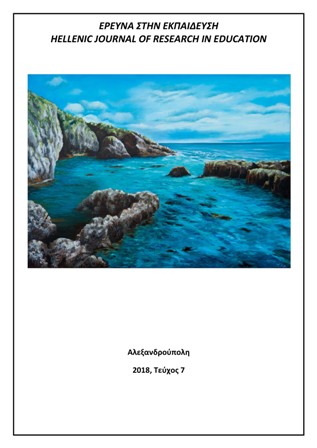Students', parents' and teachers' perceptions of English as a Foreign Language (EFL): The case of pupils with specific learning difficulties (dyslexia)

Abstract
Dyslexia is a learning difficulty which affects learners’ phonological, reading and writing skills. Much research has been devoted to dyslexic learners’ difficulties in their native language and more specifically in English. More recently, much interest has been risen regarding the effect of dyslexia on learning a foreign language. It has been suggested that children with dyslexia have problems in transferring skills from one code (first language) to another (foreign language). The present study surveys dyslexic learners’, parents’ and teachers’ views and perceptions of English as a Foreign Language. A second aim of the study is to explore pupils’ experiences, challenges and emotional factors when they learn EFL. The sample of the study consists of 13 pupils with dyslexia (9 boys and 4 girls aged 10-14 years who learn English for at least 2 years), 13 parents (10 mothers and 3 fathers aged 36-57 years) and 13 EFL teachers (all of them females, aged 26-55 years). The data were collected using semi-structured interviews with all the participants. Semi-structured interviews are analyzed by thematic analysis and the results are presented in the present paper. According to the findings, all the participants admit that learners with dyslexia encounter a large number of difficulties in pronunciation, reading, use of grammar and writing in the EFL. Secondly, differentiated teaching, use of technology, individualized teaching and multisensory teaching seem to be effective practices in EFL for learners with dyslexia. In addition, the majority of teachers in the present study seems to understand learners’ difficulties, as it was reflected in their pedagogical decisions. All the participants underline the existence of an indirect link between teachers’ attitudes to dyslexia, teacher behavior and language learning effort. The innovative aspect of the present study is that for the first time Greek learners and parents express their views about EFL teaching
Article Details
- How to Cite
-
Σταμπολτζή Α., & Τσιφτσοπούλου Μ. (2017). Students’, parents’ and teachers’ perceptions of English as a Foreign Language (EFL): The case of pupils with specific learning difficulties (dyslexia). Hellenic Journal of Research in Education, 6(1), 179–197. https://doi.org/10.12681/hjre.11955
- Issue
- Vol. 6 No. 1 (2017)
- Section
- Articles

This work is licensed under a Creative Commons Attribution-NonCommercial-ShareAlike 4.0 International License.
Authors who publish with this journal agree to the following terms:
- Authors retain copyright and grant the journal right of first publication with the work simultaneously licensed under a CC-BY-NC-SA that allows others to share the work with an acknowledgement of the work's authorship and initial publication in this journal.
- Authors are able to enter into separate, additional contractual arrangements for the non-exclusive distribution of the journal's published version of the work (e.g. post it to an institutional repository or publish it in a book), with an acknowledgement of its initial publication in this journal.
- Authors are permitted and encouraged to post their work online (preferably in institutional repositories or on their website) prior to and during the submission process, as it can lead to productive exchanges, as well as earlier and greater citation of published work (See The Effect of Open Access).



